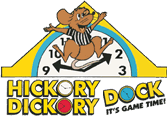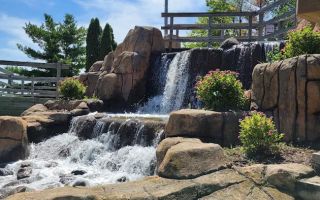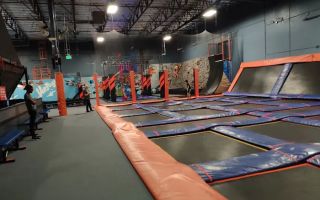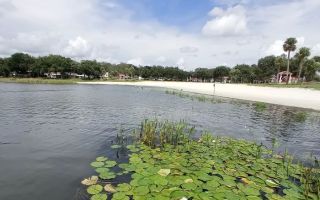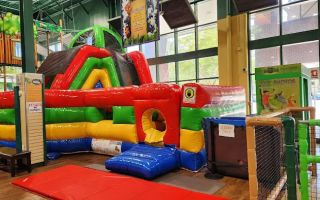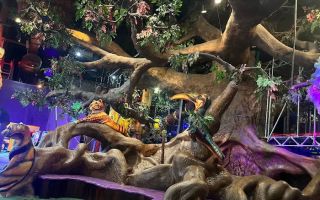Is Amusement Park a Proper Noun? Understanding Grammar in Context
As someone who loves exploring the world of grammar, I’ve often found myself wondering about common phrases and how they fit into the rules of English. One phrase that caught my attention recently was "amusement park." You might think of it as a simple term referring to a fun place to visit, but when you stop and think about it, is "amusement park" a proper noun? In this article, we will dive into this question, understand the rules of proper nouns in grammar, and clarify this point once and for all. So, let's get started!
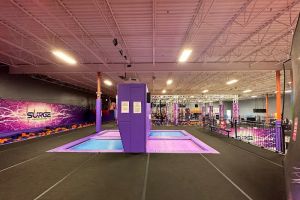
Surge Adventure Park
24 E 33rd St, Edmond, OK 73013, USA
1. What Is a Proper Noun?
Before we tackle the question of whether "amusement park" is a proper noun, let’s first make sure we understand what a proper noun actually is. In English grammar, a proper noun is a specific name used to identify a unique person, place, or thing. Proper nouns always begin with capital letters and are not used in a general sense like common nouns. For example, "John" and "Paris" are both proper nouns, while "person" and "city" are common nouns.
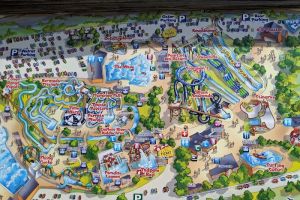
Noah's Ark Waterpark
1410 Wisconsin Dells Pkwy, Wisconsin Dells, WI 53965, USA
1.1 Examples of Proper Nouns
Some common examples of proper nouns include:
- Names of people: Sarah, William, Einstein
- Names of places: New York, London, Mount Everest
- Names of brands or organizations: Nike, Apple, NASA
- Titles of works of art or literature: The Mona Lisa, The Great Gatsby
As you can see, proper nouns are used to specify a unique entity, and they help us differentiate specific things or people from others in the same category.
2. Is "Amusement Park" a Proper Noun?
Now, let’s return to the question at hand: Is "amusement park" a proper noun? The answer to this is no—"amusement park" is not considered a proper noun by itself. While it refers to a specific type of place, the term "amusement park" is a generic term and does not name a particular park. It's similar to how "city" is not a proper noun, even though cities can be specific places. However, if you’re referring to a particular amusement park by name, such as "Disneyland" or "Universal Studios," then those would be proper nouns.
2.1 Common Nouns vs. Proper Nouns in Context
It’s important to distinguish between common nouns and proper nouns. In grammar, common nouns are general names for things, while proper nouns are specific names. The term "amusement park" is a general term for a place where people can enjoy various rides and games. Therefore, it does not qualify as a proper noun. If you say "I visited the amusement park," you are referring to a general location. However, if you say "I visited Disneyland," "Disneyland" is a proper noun because it is the specific name of that amusement park.
3. How Proper Nouns Work in Sentences
Now that we understand what proper nouns are and how they differ from common nouns, let’s talk about how proper nouns work in sentences. Proper nouns should always be capitalized, as they refer to specific entities. For example:
- "I went to Universal Studios last weekend."
- "Have you seen the Eiffel Tower in Paris?"
In both of these examples, you can see how the names of the specific places are capitalized to indicate that they are proper nouns.
3.1 Capitalizing Proper Nouns
When writing, remember that proper nouns are capitalized even if they appear in the middle of a sentence. For instance, "I visited Six Flags yesterday" uses proper noun capitalization for the specific theme park. This rule is important because it helps readers and listeners distinguish between a general place (e.g., "amusement park") and a specific location (e.g., "Six Flags").
4. Examples of Proper Nouns in the Context of Amusement Parks
When talking about amusement parks, it’s essential to understand that specific names like "Disneyland" and "EPCOT" are proper nouns, while terms like "amusement park" and "theme park" are general terms. To clarify further, let’s look at a few examples:
- "I went to Disneyland during my vacation in California." (Proper Noun)
- "We spent the day at an amusement park near our home." (Common Noun)
The first sentence uses "Disneyland" as a proper noun, while the second sentence refers to an amusement park in general. Notice that "amusement park" is not capitalized, as it’s a general term, not a specific name.
5. Common Confusions with Proper Nouns
One of the challenges many people face in English grammar is knowing when to treat a term as a proper noun or a common noun. In some cases, it can be difficult to tell whether a word is a common or proper noun. For example, "The Grand Canyon" is a proper noun because it refers to a specific place, while "canyon" is a common noun because it refers to any canyon.
5.1 Proper Noun Examples in Everyday Language
When you encounter a term, think about whether it’s referring to a specific entity or just a general class of things. For example, “amusement park” refers to the general type of attraction, not one in particular, so it is not capitalized. However, “Disneyland” is a specific location and should be capitalized.
6. Conclusion: Using Proper Nouns Correctly
By now, you should have a clear understanding of the difference between common and proper nouns. "Amusement park" is not a proper noun by itself, but if you are referring to a specific park, such as "Disneyland" or "Six Flags," those are proper nouns and should be capitalized. Remember that proper nouns help specify unique places, people, or things, and capitalizing them correctly is an essential part of good grammar.
